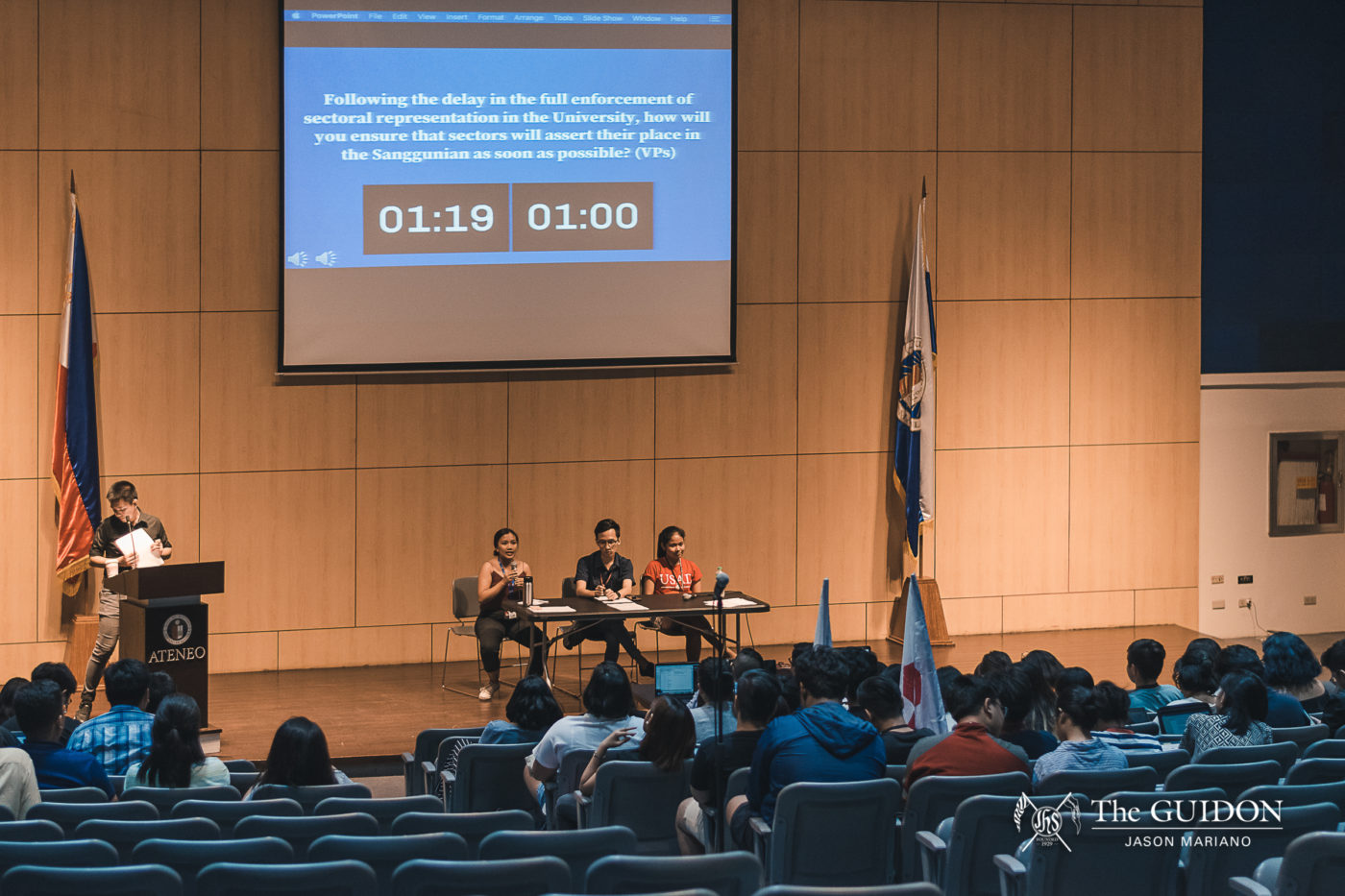FOLLOWING THE cancellation of on-site classes for the remainder of the Second Semester of AY 2019- 2020, the Ateneo Commission on Elections (COMELEC) postponed the Sanggunian General Elections. As a result, the Sanggunian has been operating under an interim government since May 8.
Former Ateneo COMELEC Commissioner for Finance Gab Montoya previously stated that elections would be held on-site during the First Semester of AY 2020-2021, but this was before the administration announced that the first semester will be fully online.
Given recent developments brought by the COVID-19 pandemic, Ateneo COMELEC Officer-in-Charge John Patrick Lumbre revealed plans to hold a constituency check on September 10 to gauge students’ willingness to participate in an online election. He added that the schedule for the General Elections can only be finalized if the constituency check results show students’ willingness to vote.
Options for online elections
Should elections push through this semester, Ateneo COMELEC is looking into two ways of holding elections online.
The first option will allow students to vote with the same system that students on Junior Term Abroad use. In this process, the document of the ballot will be sent to the students’ University emails.
The other option will utilize Google Form ballots. According to Lumbre, each student will be given a unique code to access the form, similar to the enlistment process for the Talakayang Alay sa Bayan sessions or TALAB.
Lumbre also said that a memo will be posted on their Facebook page to inform students of the online election procedures. He added that Ateneo COMELEC is planning to update the Electoral Code to include a section about “online contingencies.”
Additionally, he clarified that there is still a possibility that elections may be postponed again depending on the results of the constituency check. He stated that elections may be deferred to the second semester if the majority of respondents vote against having online elections in the first semester.
Foreseen limitations
Lumbre said that all options have “loopholes” since there will be no way to “monitor” the ballots in an online election to prevent double voting. With this, the Ateneo COMELEC plans to coordinate with the Office of Student Activities so that students with limited internet access can vote via text instead.
Lumbre also mentioned the possibility of a lower voter turnout because many students neglect to check their emails. Interim Sanggunian President Jb Bejarin expressed a similar sentiment, saying that while assumptions should not be made, voter turnout has been consistently low even before the suspension of on-site classes.
On the other hand, Interim Vice President Kat Moreno stated that it is difficult to say how turnout may be affected because “it’s dependent on a lot of different external factors.” A lower turnout can be a result of a lack of online campaigning and poor communication between the Ateneo COMELEC and the student body. Elections may not be the “students’ priority” since she observed that intersession students placed more focus on their grades.
However, she also stated that the “flipside” could happen. “Assuming the voting is done through a Google Form, then it doesn’t take a lot of time to fill out, and you can do it in one go,” she said.
Putting students first
Despite these limitations, Bejarin said that postponing elections again will also have repercussions on the freshmen and sophomores’ right to vote. For example, he explained that his mandate as interim president comes from students who voted in the General Elections of AY 2018-2019. He pointed out that he is only “technically fulfilling” his role as vice president by assuming office as interim president.
In line with this, Article II, Section 3 of the 2019 Constitution of the Undergraduate Students of the Ateneo de Manila Loyola Schools states that “Every student has the right to representation in and through the Sanggunian.”
“The process of elections needs to be more inclusive in order for more people to vote. If we just have a simple pubmat that says elections are happening without saying why it’s important, then people really [will not] vote,” Bejarin added.
While Moreno shared Bejarin’s sentiment to “push for the constitutionality of things,” she also mentioned the importance of considering students’ well-being. She explained that pushing for elections may seem “selfish” because there are external factors beyond their control.
“To push for an election in the middle of transition to online learning, in the middle of considering the difficulties with internet and the state of mental health […]. It seems like we’re pushing our own agenda just to continue,” she said.
With this, she said that the Sanggunian is “putting the students’ interests first” by continuing to work with and assist them. Bejarin also said that they are preparing for any scenario.
“We’ll [definitely] encounter some hiccups along the way, but whatever scenario COMELEC lays out for Sanggu [and] whatever scenario COVID-19 or admin lays out for the student body, Sanggu is ready to respond and help out in the students’ shift during this process,” he said.







